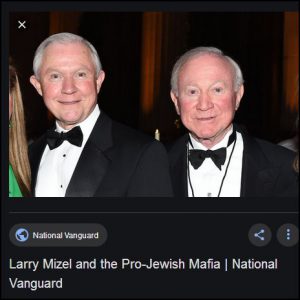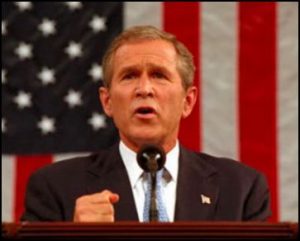
Colonel Lawrence Wilkerson, Chief of Staff to Colin Powell, Says Saudi Leads Never Thoroughly Investigated
By Brian P. McGlinchey
In his September 20, 2001 address to a joint session of Congress, President George W. Bush laid out a defining principle of his nascent war on terror: “We will pursue nations that provide aid or safe haven to terrorism. Every nation, in every region, now has a decision to make. Either you are with us, or you are with the terrorists.”
Even as he spoke those words, however, his administration had already embarked on a course that would mark them as a towering example of U.S. foreign policy hypocrisy. The Bush White House would soon present false claims linking 9/11 to Iraq, while simultaneously hiding credible evidence implicating Saudi Arabia—evidence summarized in the final, 28-page chapter of a 2002 joint congressional intelligence inquiry into 9/11.
Bush demanded the 28 pages be kept from the American public, and it’s increasingly clear why: As former State Department official Lawrence Wilkerson tells 28Pages.org, to a White House bent on selling an invasion of Iraq, compelling evidence of Saudi complicity in the attacks was an unwelcome distraction.
“You Talked About It At Your Peril”
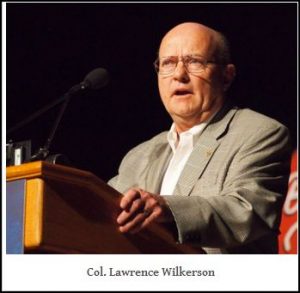
“They wanted to go to war with Iraq. Anything that supported al Qaeda connections with Baghdad, therefore, was good. Saudi Arabia just confused things so keep that out of it,” says Wilkerson, who served in the Bush administration as chief of staff to Secretary of State Colin Powell. “That wasn’t so much an effort to protect the Saudis, I don’t think, as it was an effort to justify the war with Iraq.”
The chilling effect on discussion of Saudi government links to 9/11 wasn’t confined to public statements—Wilkerson says the topic was taboo even within the Bush administration.
“It was verboten. It really was. You talked about it at your peril. You understood that the White House was going to close down anything associated with that sort of talk, so to what avail were you going to do it. I think one of the byproducts of (Vice President Dick) Cheney’s unprecedented eleven visits to CIA was to impress upon the most prominent of the intelligence agencies—and of course the Director of Central Intelligence himself—that you don’t want to go there,” says Wilkerson.
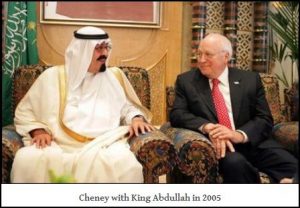
In other words, Saudi Arabia’s absence from the official 9/11 narrative was deliberate: “It wasn’t just passivity, it was action to prevent that from becoming a message,” he says.
To Wilkerson, the 28 pages—which detail direct and indirect links from the hijackers and other al Qaeda members to various Saudi government employees and even the Saudi ambassador to the United States—point to at least some degree of Saudi government attachment to the 9/11 attack.
“All of these people probably were agents of Saudi intelligence in addition to being the sort of suspicious characters, or more than just suspicious characters, associated with al Qaeda. If they were working for Saudi intelligence, don’t tell me the government or some institutional aspect of the government didn’t know about it,” says Wilkerson, who retired from the Army as a colonel before serving in the State Department.
Real Intelligence Suppressed, Phony Intelligence Elevated
Regardless of how strong the evidence pointing toward Saudi Arabia, Wilkerson says Cheney effectively dampened discussion of it—even within the intelligence community that was charged with rooting out those who enabled 9/11.
“My first meeting with (CIA director) George Tenet out at Langley when we were getting ready to get going on Powell’s presentation to the United Nations reinforced that in spades, by simply having John Hannah from the vice president’s office start everything off with his clipboard that was jam-packed with ‘Scooter Libby’s smorgasbord,’ as John called it, from which we could pick and choose as we wanted—except his saying there’s nothing in here about Saudi Arabia and Saudi Arabia will not be discussed,” says Wilkerson. (Libby was Cheney’s chief of staff.)
As they prepared that pivotal address, Wilkerson says he and Powell were under constant pressure to include claims that al Qaeda was linked to the Iraqi government.
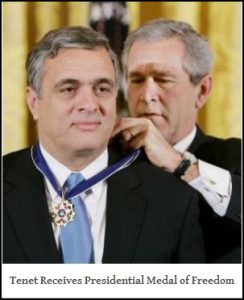
“You couldn’t kill it. We tried. We put a stake in that ten times, and it kept raising its head. The vice president would not turn it loose,” says Wilkerson. “That’s part of why they tortured people to try to and get more information on the connections between al Qaeda and Baghdad. It’s part of why they shifted their interrogation focus away from another attack on the United States to connections between al Qaeda and Baghdad—and anything that reinforced that, anything that made their case for war more ‘legitimate’ and more acceptable to the American people, they wanted.”
Days before the UN speech, Powell’s agitation over being pressured to include dubious information in the speech boiled over, said Wilkerson, and the two agreed to remove any content linking al Qaeda to Iraq.
The decision would be reversed in short order. As Wilkerson related to former CIA analyst Ray McGovern for a piece at Consortium News, “Within an hour, [CIA Director George] Tenet and [CIA Deputy Director John] McLaughlin dropped a bombshell on the table in the [CIA] director’s conference room: a high-level al Qaeda detainee had just revealed under interrogation substantive contacts between al Qaeda and Baghdad, including Iraqis training al Qaeda operatives in the use of chemical and biological weapons.”
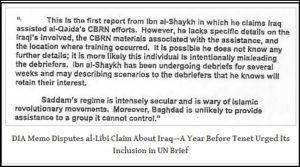
Powell ordered it to be added to the presentation. Later, well after Powell had presented it to the United Nations assembly and the world, the two would learn the claim was extracted a year earlier from detainee Ibn al-Sheikh al-Libi via torture at the hands of the Egyptians, and that the Defense Intelligence Agency gave it little credibility.
Al-Libi recanted the statement and died in a Libyan prison in 2009 of a reported suicide, but the tortured “evidence” had already served its terrible purpose: A September 2003 poll found that 69% of Americans felt it was likely Hussein was personally involved in the 9/11 attack.
Wilkerson has been an outspoken critic of U.S. torture of detainees; reflecting on the idea of torture to extract false intelligence, he described it as “even more heinous. It was not the lesser evil to prevent the greater evil, it was the lesser evil to enable the greater evil, because Iraq was the most catastrophic strategic decision in the post-World War II era, and that is a real powerful statement, because Vietnam was that before Iraq.”
“Vietnam in some sense is understandable as a theater in the Cold War that was badly misinterpreted,” he continues. “Iraq simply has no way of being understood. You have to lie, cheat and steal, as the neoconservatives are constantly doing, to explain Iraq. Iraq unleashed al Qaeda in Iraq. It unleashed ISIS. It unleashed everything that is happening that is destabilizing right now in western Asia.”
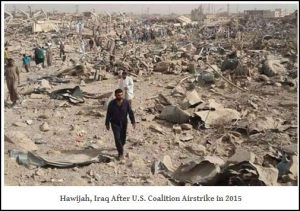
Wilkerson relates a recent encounter that drives home the impact of the 2003 Iraq invasion: “A Jordanian prince said to me recently, ‘Go back to your country and tell your old boss—I know him well—that there is an Iraqi or Syrian family in every single Jordanian household, including the royal household. Go back and tell him that that is massively destabilizing and you are responsible.’”
Saudi Leads Never Pursued
There are, of course, two sides to the coin of post-9/11 Bush-Cheney duplicity: At the same time the administration falsely implied an Iraqi link to the attacks, it suppressed the broad evidence of Saudi connections detailed in the 28 pages.
Seeking to discredit those pages, the U.S. and Saudi governments and 9/11 Commission chairs Lee Hamilton and Tom Keane have claimed the commission thoroughly investigated the various circumstances in the 28 pages before concluding that—in the words of the its final report—it “found no evidence that the Saudi government as an institution or senior Saudi officials individually funded” al Qaeda.
Wilkerson isn’t buying it.
“It’s utter hogwash with regard to the entire set of circumstances surrounding 9/11 in my view,” says Wilkerson. “As far as I know, there never was an official investigation of so many of the things that are intimated in there, not least of which is a really hard look by the intelligence community at the ultimate question of (Saudi) government knowledge, government direction, even government strategy associated with the Salafist movement in general but, more specifically, organizations like al Qaeda.”
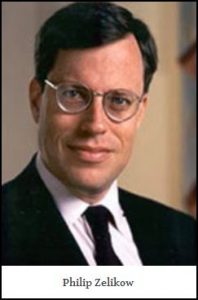
Wilkerson says the 9/11 Commission’s avoidance of troubling conclusions about Saudi Arabia was pre-ordained with the selection of Philip Zelikow as its executive director. Zelikow had previously co-authored a book with Bush National Security Advisor Condoleezza Rice, served on the Bush transition team and had even written an articulation of Bush’s preemptive war doctrine that was issued in 2002 under the president’s signature.
“It was clear to me from the very beginning that he was there as a control agent. I didn’t know how definitively he would control the process until later,” says Wilkerson.
“He was tuned into the administration. He was tuned into what the administration wanted and he made sure that people who would pontificate later that they were totally independent, like Lee Hamilton and others, were in fact following the script. That’s understandable from a political point of view, but from an accountability point of view and even more so from a national security point of view, it’s damnable,” he says.
“You watch these things happen, and you understand why they’re happening from the perspective of the institutions with which you’re involved, the government with which you’re involved, but you never dream the extent to which these things will go in the long run and how much history, such as it is, depends upon their efforts and often times is distorted by their efforts.”
Brian McGlinchey is the founder and director of 28Pages.org.
Bush Official: Saudi Ties to 9/11 Hidden to Protect Iraq War Narrative
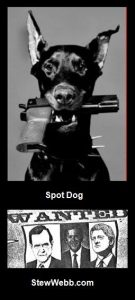
Your kind Contributions are very much appreciated thank you. – Stew Webb



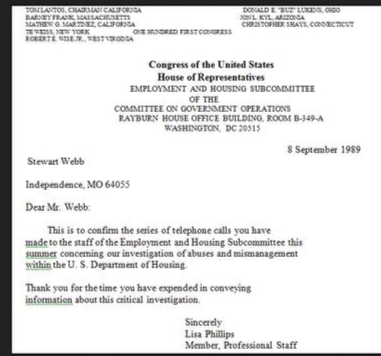
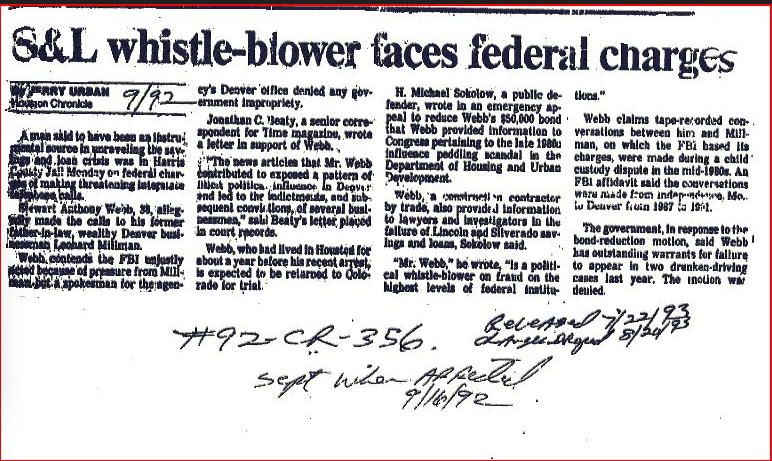
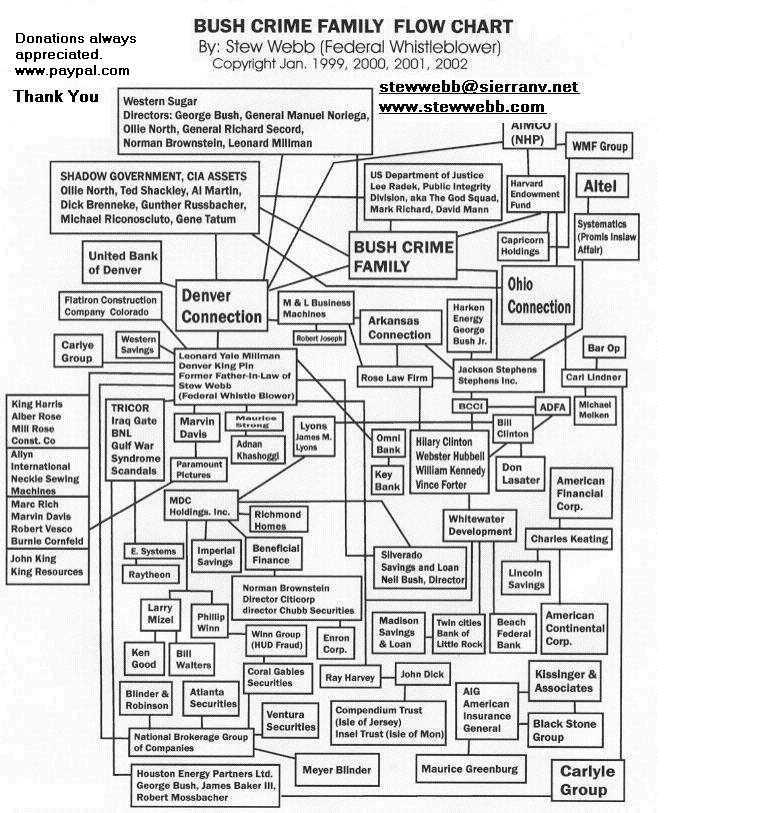
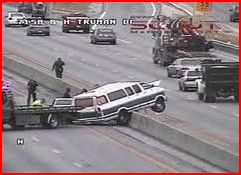



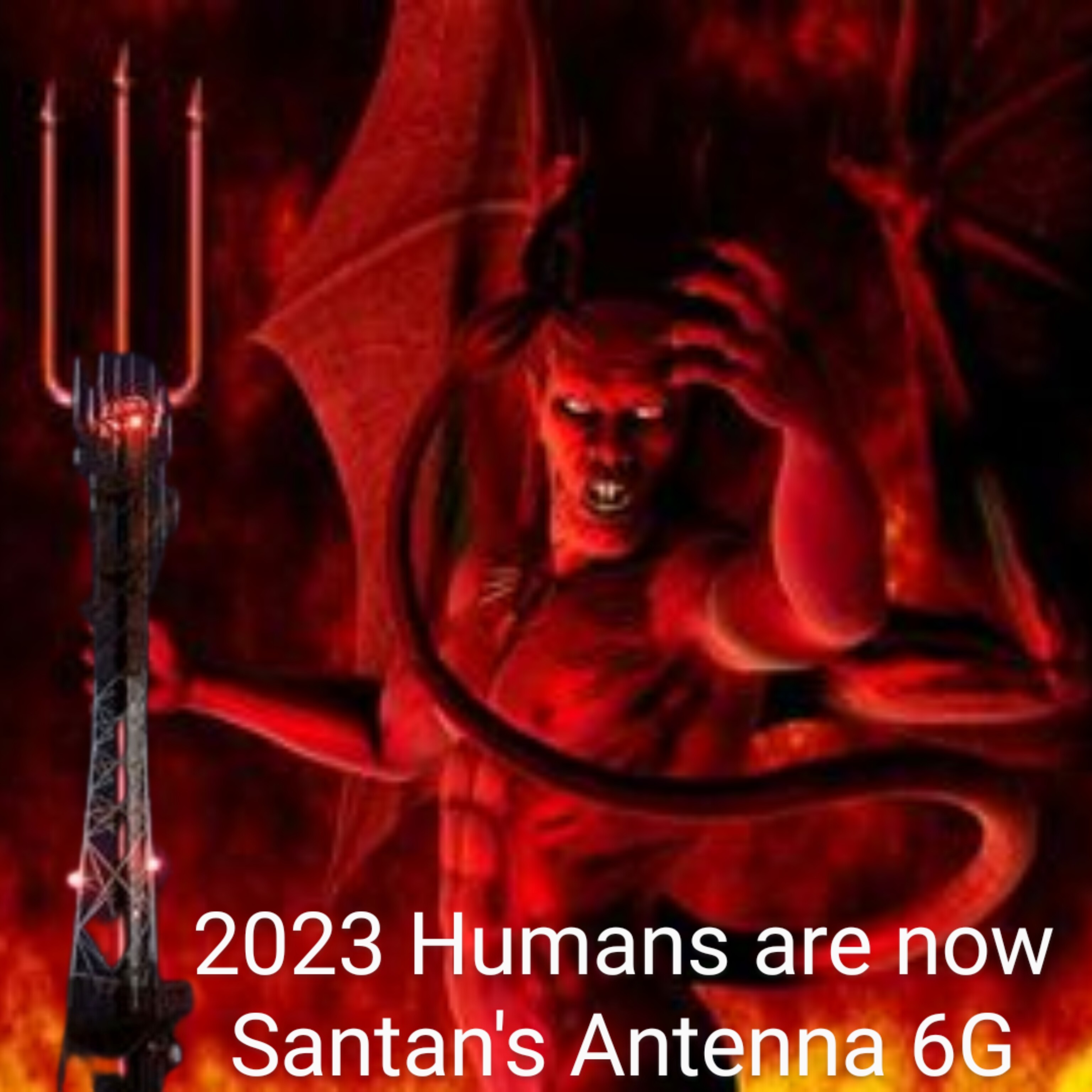
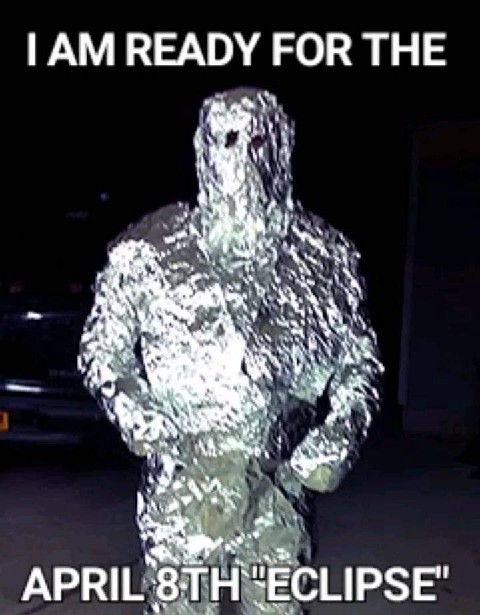
.jpg)
